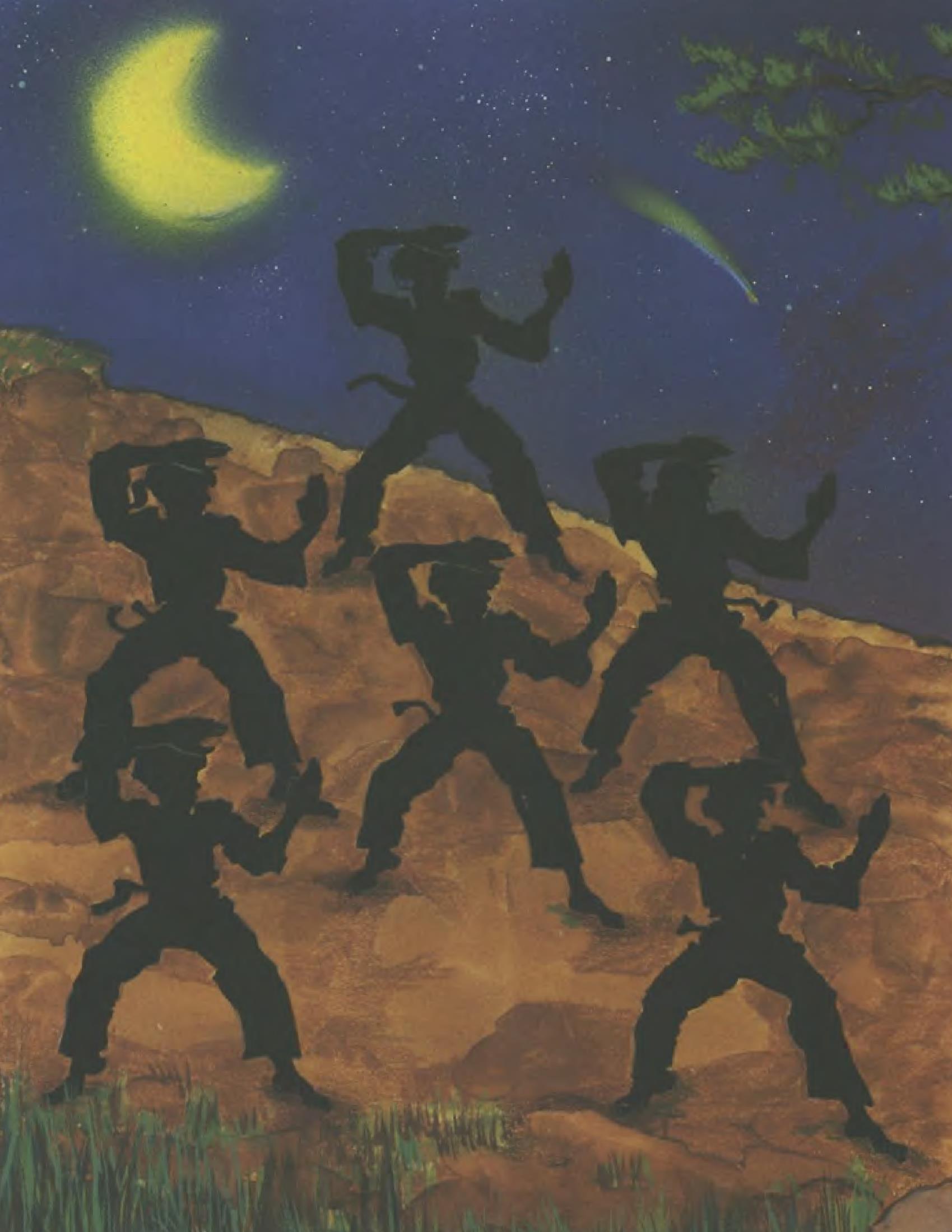Chapter 3
TAKE NAMI DO AND MUKUSO
"Can you bend like the bamboo in the wind? Can you not hurt back even when you have been hurt?"
Take = Bamboo
In Japanese, "Take Nami Do" means Bamboo-Wave-Way.
Can you imagine what this means? In the practice of self-defense, TAKE means to block -
to stop an attack. Because
bamboo is a strong, resilient plant, when the wind blows, bamboo bends. It yields to the strength of the wind and "goes with the flow." It bends, but it does not break. When the wind stops, the bamboo comes back to its original form unharmed.
When you have been hurt, there have probably been times when you wished you could be like the bamboo. What have you wished you could do? Duck or dodge? Get out of the way?
Hit someone back? Because it didn't feel good when someone made fun of you, or hurt you in some way, your immediate instinct was probably to hurt that person back. And if you did strike back, chances are you still didn't feel good.
There is something else you can do! You can be like the bamboo. You can bend in the force of the wind -
in other
words, you can listen to the hurtful words, or avoid the punch instead of hurting back. You are probably saying to yourself, why would I want to do that? Why wouldn't I want to hurt that person back?
22
Try this with a friend, just for the fun of it. Ask your friend to make fun of you, and see what happens inside. How do you feel? What thoughts go through your head? What do you want to say to that person? Do you want to call him or her names?
What do you want to do to that person? Do you want to hit him? Slap her? Ah, but here is the trick: To not do any of those things. The trick is to simply WATCH all of this as if it were a movie. The trick is to LISTEN to all your feelings but not act on them. Can you do this? This is how you do it. You and your friend can take turns.
1. Ask your friend to make fun of you.
2. Listen to the hurtful words.
3. Watch the hurtful feelings.
4. Let the hurt come up so that you can feel it.
5. Let the hurt go away.
This acting like the bamboo is a very important part of Karate and of life. People get into a lot of trouble when they feel hurt and try to hurt back. Can you see the importance of not hurting back? What do you think it is? Talk this over with your friends, your teacher, your parents.
Nami = Wave
In Japanese, NAMI means Wave. In self defense, wave means the strong force of a punch, kick, or strike. Sometimes a person has to be strong. But being strong does not mean being a bully and hurting people. Being strong means not fighting back; it means finding some other less violent way to deal with conflict. NAMI also refers to the strong feelings and 23
thoughts we have that sometimes surface when we feel hurt, sad, angry, or frustrated. It is often important to share these strong feelings and thoughts with the person who said or did something that caused those feelings inside us.
Of course there are times when we cannot, or do not want to, share these thoughts and feelings. This can be very frustrating. What can we do instead?
Mukuso
As part of the Art of Karate, the Japanese teach Mukuso (Mock-so). Mukuso means to meditate - to watch your thoughts and feelings without doing anything about them -
like being the bamboo. Sometimes with the eyes closed, sometimes with eyes open, you watch your feelings and thoughts come up, like bubbles in a glass of soda. One by one, your hurt feelings rise to the surface and disappear.
When you practice Take Nami Do and Mukuso and watch your thoughts and feelings float like clouds across the sky, you learn to discover where your hurt comes from. And if you discover where your hurt comes from, you are on the path to the greatest exploration of all in the Art of Karate: the discovery of the "Empty Self."
Here is a story that will show you what we mean. It's about Luke, who dealt with a bully and found his Empty Self.
"Hey, you! Punk! You with the four eyes. You look stupid,"
yelled Brian, a tall, rough-looking, red-haired kid.
He was yelling at Luke in the playground. The playground supervisor was on the other side of the yard and couldn't hear 24
what Brian was yelling. Luke got a queasy feeling in his stomach, a feeling he was used to but was not worried about any longer since he was taking Karate.
He remembered his Karate
teacher saying, "Look, Luke, fear is a natural feeling.
Some-
times it helps you get out of trouble, like when you realize you've run out into the street without looking.
It helps you act
quickly so you can prevent yourself from being harmed. But fear can cause problems, like when it makes you act at a time you know you shouldn't."
"You heard me, jerk!" Brian was coming across the yard towards Luke.
Luke felt the fear rise up inside him.
But this time, in-
stead of running away from Brian, as he usually did, he stopped and looked at the fear. He let the feeling come up but didn't act on it. Luke turned in Brian's direction and stood very still, watching and waiting.
"So, you wanna fight me, shorty? Is that it?" Brian continued to push.
Luke felt a sudden flare of anger rise up in himself but instead of acting out his anger, he just watched it. He heard his teacher's words, "Be like bamboo, Luke. Let the wave come up and crash on you. Just bend with it, don't resist."
Suddenly Brian stepped forward.
Luke, looking up at the
larger boy, stood his ground. A lthough he noticed a slight weakness in his knees, he didn't let it bother him.
He felt fear,
but, again, he just watched it come up like a wave, and then go.
Luke noticed that Brian was unsure of himself now that Luke was taking a stand.
"Aw, you ain't worth it anyhow," Brian blurted out in dis-gust. "You're a coward! You know I could beat you if I wanted."
25
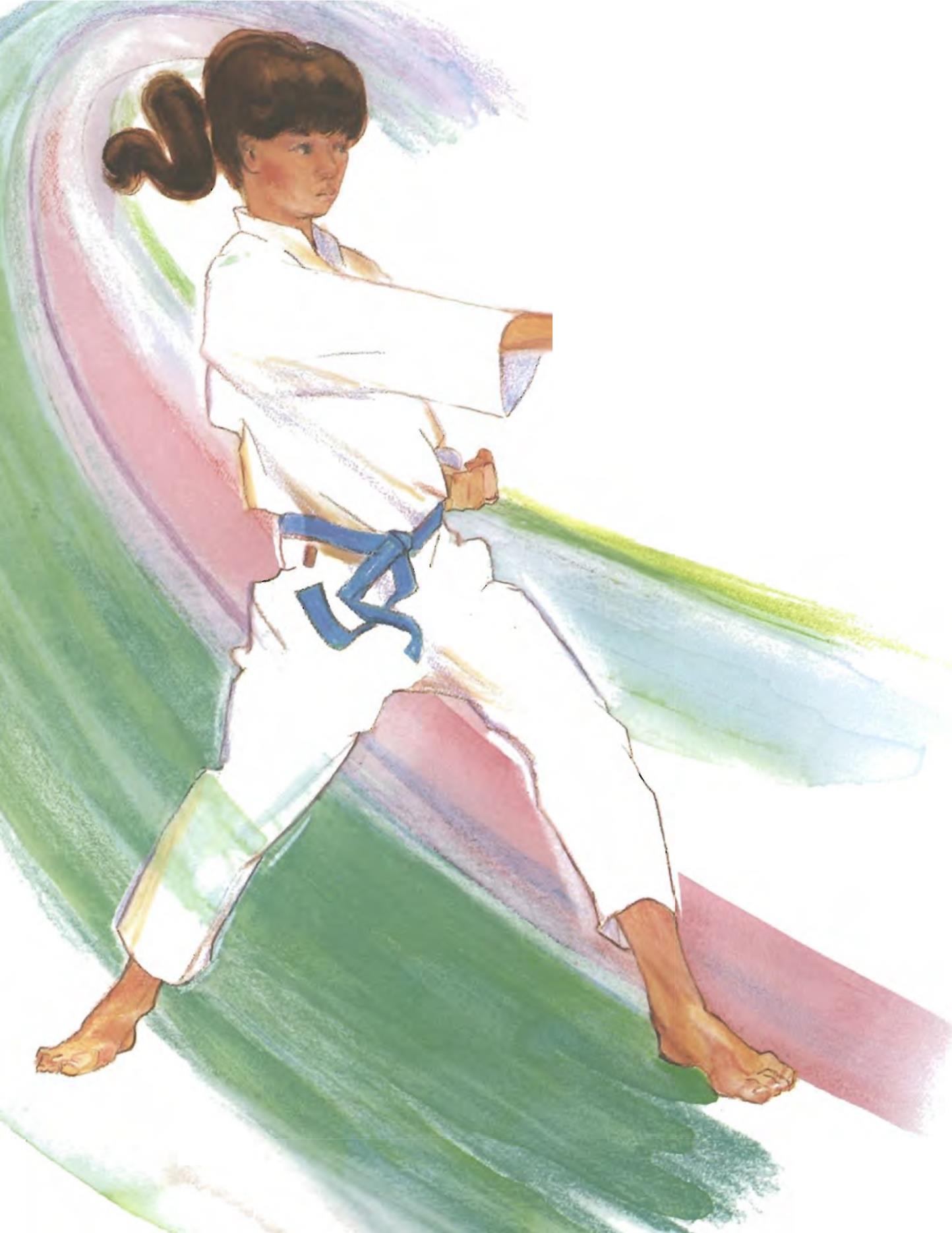


I
i

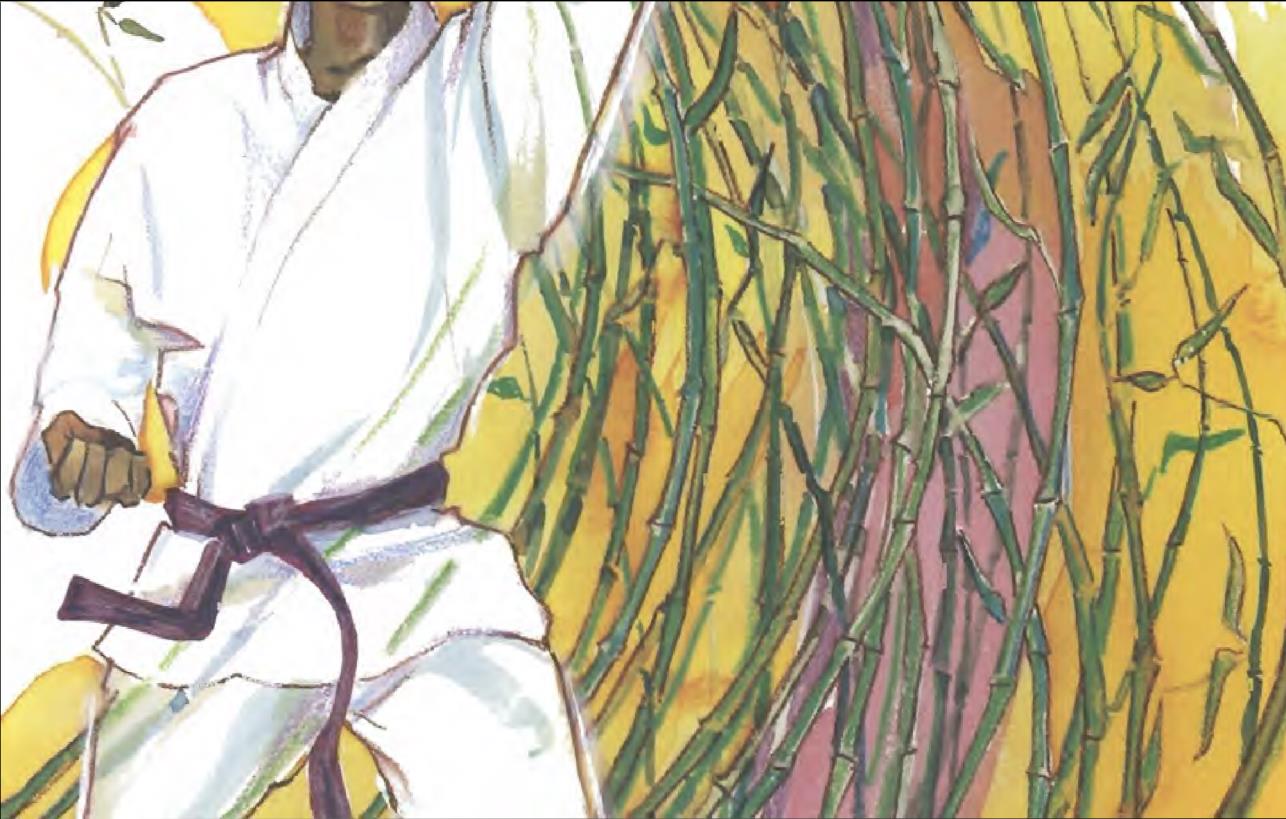






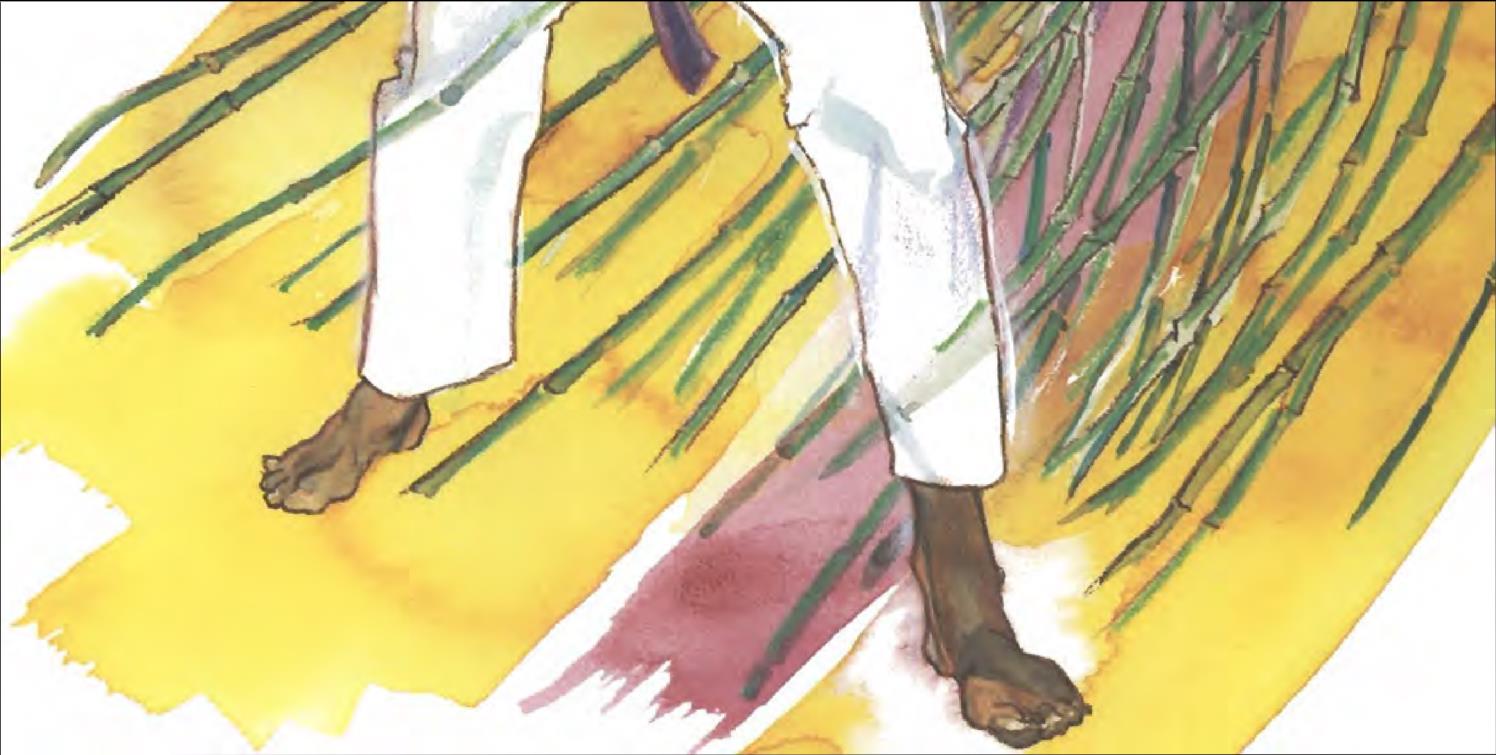

"You may be right, " Luke replied calmly. "So why fight?"
At this, Brian turned away and went back across the Bchoolyard looking for someone else to pick on.
"Good for you, Luke," his teacher said when Luke told him what had happened that day. ''You have learned the lesson well of the bamboo and the wave."
Luke's teacher rang the bell at the beginning of class and all the students sat down quietly in Mukuso. As they sat they just watched what was going on -
inside and out. Luke saw
that his mind was going over what had occurred with Brian.
Little by little the thoughts faded as he sat.
When the bell rang again and it was time for practice, Luke got up quickly, his mind now ready and alert in the moment for whatever should happen.
Practicing Mukuso
Find a comfortable place to sit, where you can totally relax for a few minutes. Then do the following:
1. Think of someone who or something that has been on your mind lately -
your father, your mother, your teacher,
your close friend, the kids at school, your homework.
Pick just one thought.
2. Perhaps you might want to think about someone or something you feel angry or hurt about.
3. As you are sitting comfortably, close your eyes and look inside at your hurt or angry feelings.
Don't do anything
-just watch. Be like the bamboo.
28
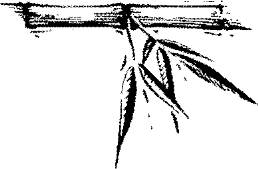
4. Let those feelings come up like bubbles in a glass of soda.
Watch how they disappear, without any effort! You don't have to do anything. What is important is to just watch.
Try not to judge what you see. If you do, just watch that.
The point is to let the thoughts come and go without ever acting on the fearful or hurtful thoughts.
5. Think about where that hurt or angry feeling came from, and think about how good it feels to have it go away.
Can you bend like the bamboo in the wind? Can you not hurt back even when you have been hurt?
